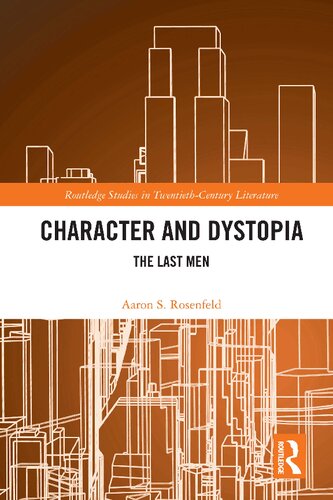

Most ebook files are in PDF format, so you can easily read them using various software such as Foxit Reader or directly on the Google Chrome browser.
Some ebook files are released by publishers in other formats such as .awz, .mobi, .epub, .fb2, etc. You may need to install specific software to read these formats on mobile/PC, such as Calibre.
Please read the tutorial at this link: https://ebookbell.com/faq
We offer FREE conversion to the popular formats you request; however, this may take some time. Therefore, right after payment, please email us, and we will try to provide the service as quickly as possible.
For some exceptional file formats or broken links (if any), please refrain from opening any disputes. Instead, email us first, and we will try to assist within a maximum of 6 hours.
EbookBell Team

5.0
100 reviewsThis is the first extended study to specifically focus on character in dystopia. Through the lens of the "last man" figure, Character and Dystopia: The Last Men examines character development in Yevgeny Zamyatin’s We, Anthony Burgess’s A Clockwork Orange, Kazuo Ishiguro’s Never Let Me Go, Fyodor Dostoevsky’s Notes from Underground, George Orwell’s Nineteen Eighty-Four, Nathanael West’s A Cool Million, David Mamet’s Glengarry Glen Ross, Octavia Butler’s Parable of the Sower, Lois Lowry’s The Giver, Michel Houellebecq’s Submission, Chan Koonchung’s The Fat Years, and Maggie Shen King’s An Excess Male, showing how in the 20th and 21st centuries dystopian nostalgia shades into reactionary humanism, a last stand mounted in defense of forms of subjectivity no longer supported by modernity. Unlike most work on dystopia that emphasizes dystopia’s politics, this book’s approach grows out of questions of poetics: What are the formal structures by which dystopian character is constructed? How do dystopian characters operate differently than other characters, within texts and upon the reader? What is the relation between this character and other forms of literary character, such as are found in romantic and modernist texts? By reading character as crucial to the dystopian project, the book makes a case for dystopia as a sensitive register of modern anxieties about subjectivity and its portrayal in literary works.